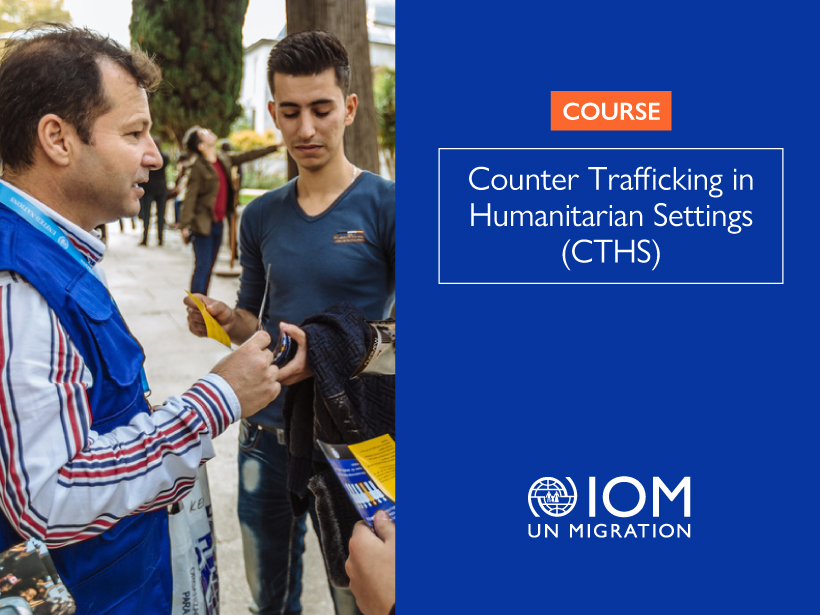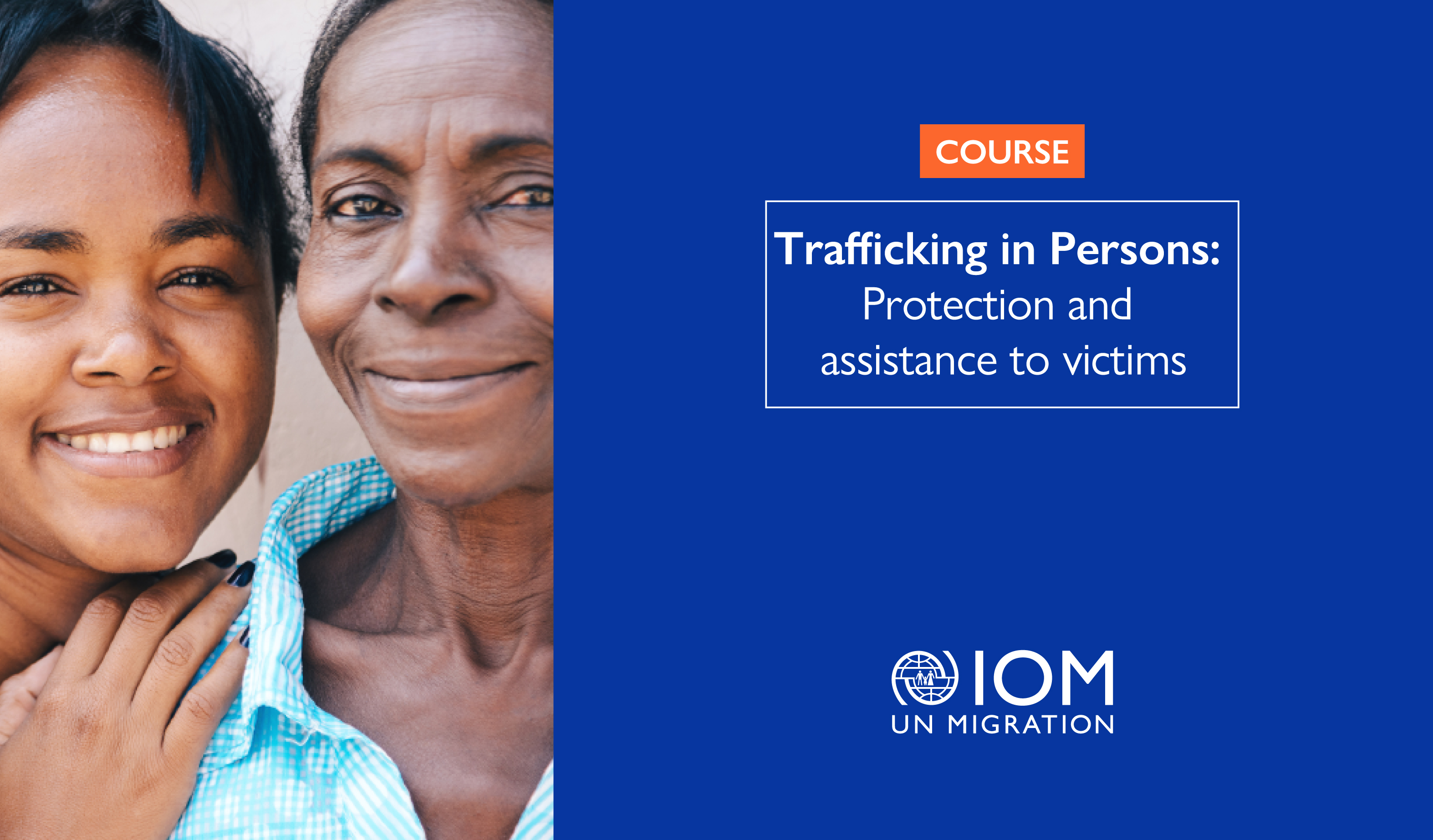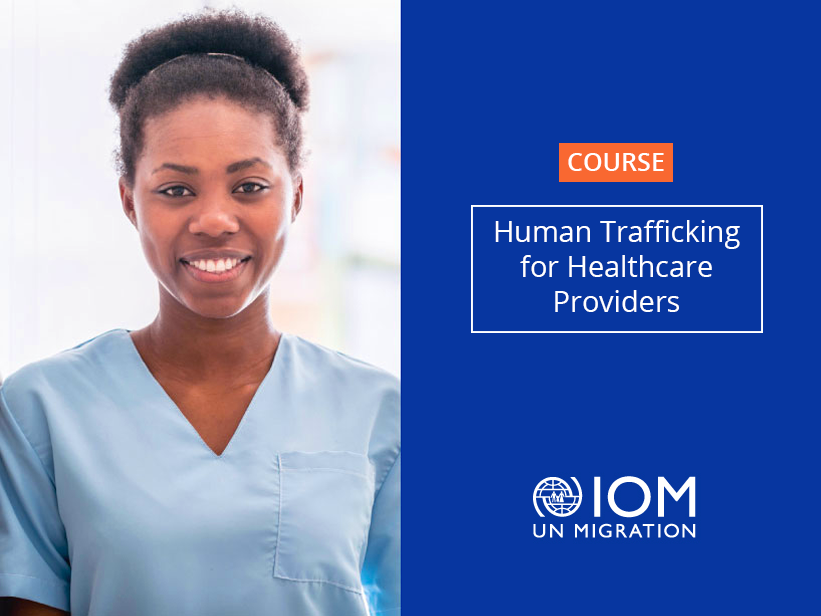
Humanitarian crises may exacerbate pre-existing trafficking trends and give rise to new ones.
IOM developed this unique e-learning course for Humanitarian Personnel which can include Government entities, UN agencies, international and local NGOs, that respond to humanitarian crises. It is designed for audiences who may be familiar with humanitarian responses but are unfamiliar with anti-trafficking interventions in humanitarian responses. The course should be informative to anyone involved with anti-trafficking interventions in contexts affected by crisis.This course was funded by the United States Department of State, under the terms of Award No. SSJTIP17CA1017. The opinions expressed herein are those of the developers and do not necessarily reflect the views of the United States Department of State.
| Learning modality: Self-paced. 100% Online | |
| Date: Available all year | |
| Duration: Approximately 3 hours | |
| Language: English | |
| Cost: Free | |
| Geographical Coverage: Worldwide |

This course addresses the definition of human trafficking and its features, as well as the difference between it and migrant smuggling and other related crimes.
It also reviews the history of this crime and explains why it is important to consider the various profiles of people who are involved in migration processes.
| Learning modality: Self-paced. 100% Online | |
| Date: Available all year | |
| Duration: Approximately 3 hours | |
| Language: English | |
| Cost: Free | |
| Geographical Coverage: Latin America and The Caribbean |
 Healthcare professionals may have contact with victims and potential victims of the crime of human trafficking. For this reason, they play an important role identifying eventual cases and providing care for victims in clinics, hospitals, health centers, among others. This course aims to improve the capabilities of healthcare professionals through information and practical tools.
Healthcare professionals may have contact with victims and potential victims of the crime of human trafficking. For this reason, they play an important role identifying eventual cases and providing care for victims in clinics, hospitals, health centers, among others. This course aims to improve the capabilities of healthcare professionals through information and practical tools.| Learning modality: Open self-enrollment | |
| Date: Available all year | |
| Duration: Approximately 3 hours | |
| Language: English | |
| Cost: Free | |
| Geographical Coverage: Worldwide |
- Docente: Alexandra Bonnie
- Docente: Alexandra Bonnie
- Docente: Alejandra Cognuck
